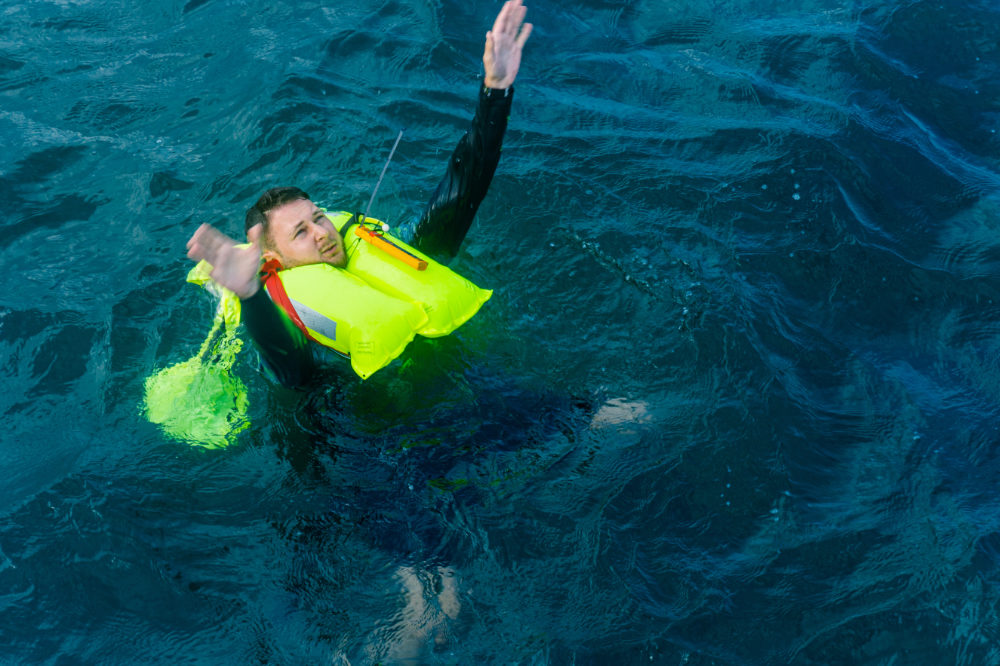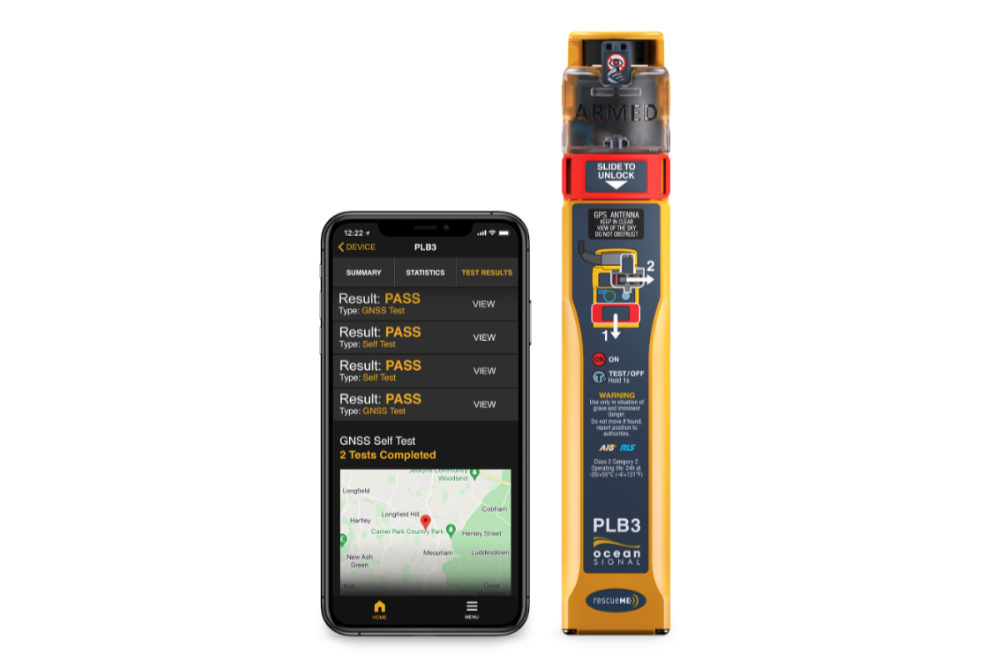Combining multiple levels of integrated signal technology within a personal locator beacon for the first time, the newly Cospas-Sarsat approved Ocean Signal rescueME PLB3 offers boaters the most powerful safety solution for rapid rescue in a Man Overboard (MOB) emergency.
The next generation PLB3 unites two different key systems to provide a survivor with the best chance of quickly alerting others to a distress situation – benefiting from the global response capabilities of the Cospas-Sarsat rescue services, while also using AIS technology to indicate an MOB position to nearby vessels for immediate aid.
Designed for installation within a life jacket for semi-automatic activation upon inflation, the Ocean Signal PLB3 integrates GNSS (Global Navigation Satellite System) positioning, 406 MHz, 121.5 MHz signals and AIS transmission, as well as the new Galileo Return Link Service (RLS) technology, to deliver a comprehensive and complete communication link to emergency services, even if the survivor is incapacitated.
Ocean Signal has also introduced Near Field Communications (NFC) into the rescueME PLB3, unleashing a new way for beacon owners to monitor their beacons, review self-test results, view GNSS test locations, and monitor beacon performance and maintenance. By simply holding a mobile phone over the beacon’s designated NFC area, the latest beacon information is automatically transferred into the Ocean Signal mobile app for viewing.
The rescueME PLB3, once activated, transmits an AIS man overboard signal that will be picked up by any AIS equipped vessels within VHF radio range and plotted onto a connected chart plotter or ECDIS system.

At the same time, a 406 MHz distress signal will quickly and accurately relay the position to a worldwide network of Cospas-Sarsat search and rescue satellites to alert the Search and Rescue of a person in grave and imminent danger, triggering an international response that will be forwarded to the most suitable rescue service for the location of the survivor.
Offering vital reassurance in a life-threatening emergency, the PLB3 is compatible with Return Link Service (RLS) alerting technology and can provide the user with confirmation that the international satellite system has received their distress message and location.
The Ocean Signal AIS personal locator beacon features more built-in local aids to location in the form of the 121 MHz homing signal, plus visible and infrared strobe lights, which will be operational to guide assistance directly to the location, particularly during night, or other low visibility rescues.
For sailors operating in relatively close proximity to other vessels, the most likely source of a swift rescue will come from one of those vessels that will have been alerted by the AIS MOB signal. If this signal is not received by a vessel within range, then the 406 MHz global satellite system will trigger a response suitable for the location.
Ocean Signal Managing Director James Hewitt said: “Answering significant demand for a user-friendly and compact AIS MOB device and Cospas-Sarsat PLB in one package, the PLB3 offers all boaters a new level of safety that will help save more lives, while also aiding the rescue services in locating and helping survivors. Not only did we deliver that in the new PLB3, but the addition of NFC and the new mobile app makes our technology more user friendly, providing our customers with the technology they expect. Ocean Signal has developed a range of safety devices renowned for their innovative design, functionality and features, so we are excited to expand the solutions available to customers with this ground-breaking device.
“Ocean Signal recommends that anyone taking a boat offshore should have both the 406 MHz and AIS to optimize their chances of alerting others to a distress situation. The AIS feature is most effective when there are likely to be vessels within VHF radio where the distress alert will be picked up by AIS receivers, as those vessels will then have all the information they need to alter course and offer assistance with search and rescue operations.”
The Ocean Signal beacon features innovative design elements and multifunctional clips to ensure the device can be easily installed in a life jacket or carried on a user’s person.
Weighing just 0.42lbs (190g), the rugged and waterproof rescueME PLB3 measures 7.87in / 20cm (L) x 1.41in / 3.6cm (W) x 1.81in / 3.0cm (D). It is MEOSAR compatible and capable of operating for 24 hours, with a five-year battery life.
METSTRADE 2022, 15th to 17th November, Stand 03.438

